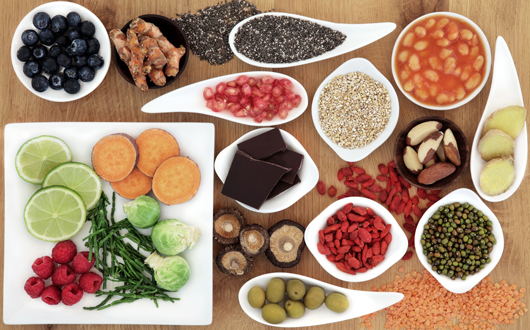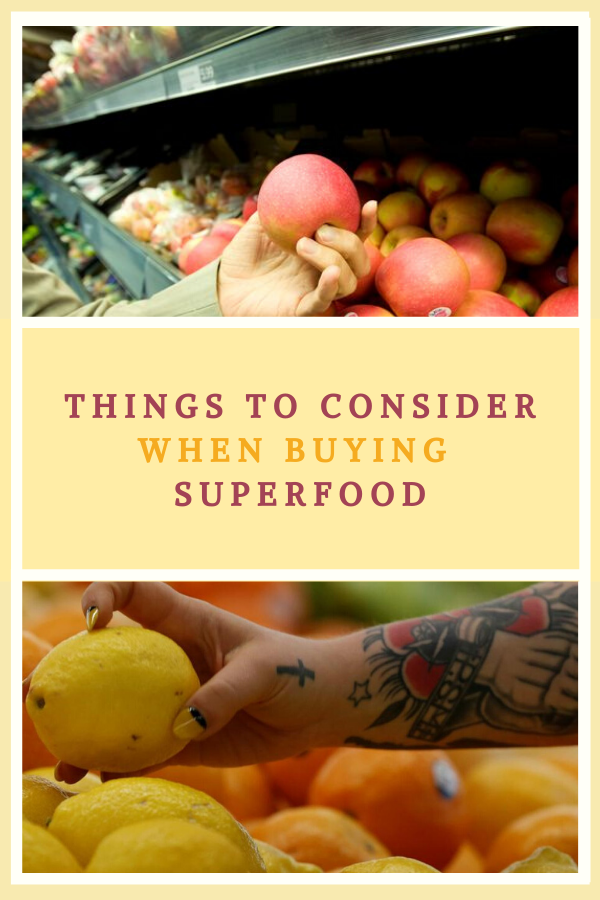
We are all eternally impatient and lazy suckers for an easy fix to all our problems, perpetually seeking the next best all-in-one food.
That “elixir of life” in the form of a high-protein, no carb food; one that will lower our blood pressure, boost energy, fight disease and it better be vegan or raw. Both media and consumers are easy prey, as a new superfood is spotted every month and it looses popularity again in a year or so.
By definition, a superfood is a food with extraordinary health benefits and is nutrient dense. Typically, superfoods are foods high in antioxidants, are a good source of healthy fats, vitamins and fiber and confers other health benefits such as probiotic support or cholesterol lowering.
I am not denying that Broccoli, Kale, Quiona and Chia are superfoods. But with the term being thrown around so often now, it is easy to get be fooled by the hype, unless you research your product.
Here are some facts you need to be aware of before buying any label that says “Superfood” –

1. Tags like “Organic”, “Gluten-free”, “No-fat”, “No-sugar”, “Raw”, “Natural”, “Healthy” – These tags are being used so liberally these days that it can be very misleading and confusing. We are not saying that a fruit, fish or dairy product can’t be nutrient dense, but don’t be lured by the label. Sometimes the food is really a Superfood but the processing kills the nutrients. For example, Green Tea is being touted as a miracle drink loaded with anti-oxidants, yet it is not sold in America the way it is essentially sold in Japan. The Green Tea, more often than not, is loaded with sugar and over-processed to be more palatable than nutritious. Read what you should know about green tea varieties here.
Everything natural and organic is not healthy. Sometimes products termed as “Raw” might undergo high temperature processing. Similarly, many whole grains undergo so much processing that they defy the purpose of being healthful and rather focus on being more quick foods with added preservatives and sugar. So beware, read the label more carefully and make an informed decision.
2. Expensive, exotic and from far-away places – Himalayan Goji Berries and Camu Camu from Peru, all these far-flung superfoods, definitely sound exotic, but are they really what they claim to be? This is the question you should be asking before you buy an over-priced, over-promising but under-delivering Superfood.
Most of the Goji berries that claim to be from the Himalayan region of Tibet or Mongolia are actually Chinese Wolfberry, which look quite alike but are mass produced and are not nearly as exotic as the authentic ones.
3. More is not always better – It is easy to get carried away and overdo a particular nutrition from a Superfood you love. Rather than focusing on complete nutrition and dietary diversity, we tend to include the same food over and over again. Superfoods are undoubtedly nutrient dense, but we can’t overlook other essential nutrients needed in our diet.
Eating too much fruit is not recommended either. Excessive intake of fruit can increase appetite and spike fruit sugar levels in the body leading to further problems.
4. Spirulina is great but so are spinach and kale. Don’t restrict yourself to one food because of the term superfood. Is broccoli actually superior to pomegranate? We can’t compare them. Eat variety, seasonal whole foods and enjoy good health.
5. Studies and Approvals – Can you believe that the buzzword Superfood is not an official scientific term? The European Union has also banned the word for inclusion in marketing and labels unless supported by credible scientific research. Studies on rats and animals can only do so much for credibility. Yes, we agree Blueberries are good for you, but did you know that only limited research has been performed on these antioxidant rich but not-so-nutritionally dense berries. So eat them in moderation and always take the term with a grain of salt.
6. There is no cure-for-all food and no single food is complete in itself –Want to lose weight and cleanse the body from toxins? In addition, also aim to lower blood pressure, treat diabetes and boost sexual performance with the same food. Food for thought – Can one food or supplement, really be answer to all your needs? Indulge in more natural wholesome foods because Kale or Maca alone cannot be your savior.
7. Free Trials – Don’t give in to the marketing ploy of free trials because there are no free lunches in this world. Complaint boards and discussion forums are busting the myth of free trials, with complaints against companies who charge your credit card in the name of delivery charges and other taxes after offering Free Trials. So stay away from such companies and read reviews and feedbacks before ordering something.
Keep in mind your environment, genetics, diet, weight and other factors. What is good for others might not work for you. All these factors are related and need to be kept in mind while getting your hands on a particular Superfood.
The Bottom line
Keep in mind not to buy anything just because it is labeled a Superfood. All whole foods and fruits are good for you and provide a different blend of nutrients. Eat a balanced, nutritionally diverse and wholesome diet. Superfoods are great, but beware of products that might not be what they claim.
On a positive note, we are rediscovering some lost and ancient foods and trying new tastes which we might never have done otherwise.
Enjoyed Before Buying Superfood – Facts to help you make an informed choice? Share it with your friends so they too can follow the Superfoodsliving journey.
Share on Pinterest
